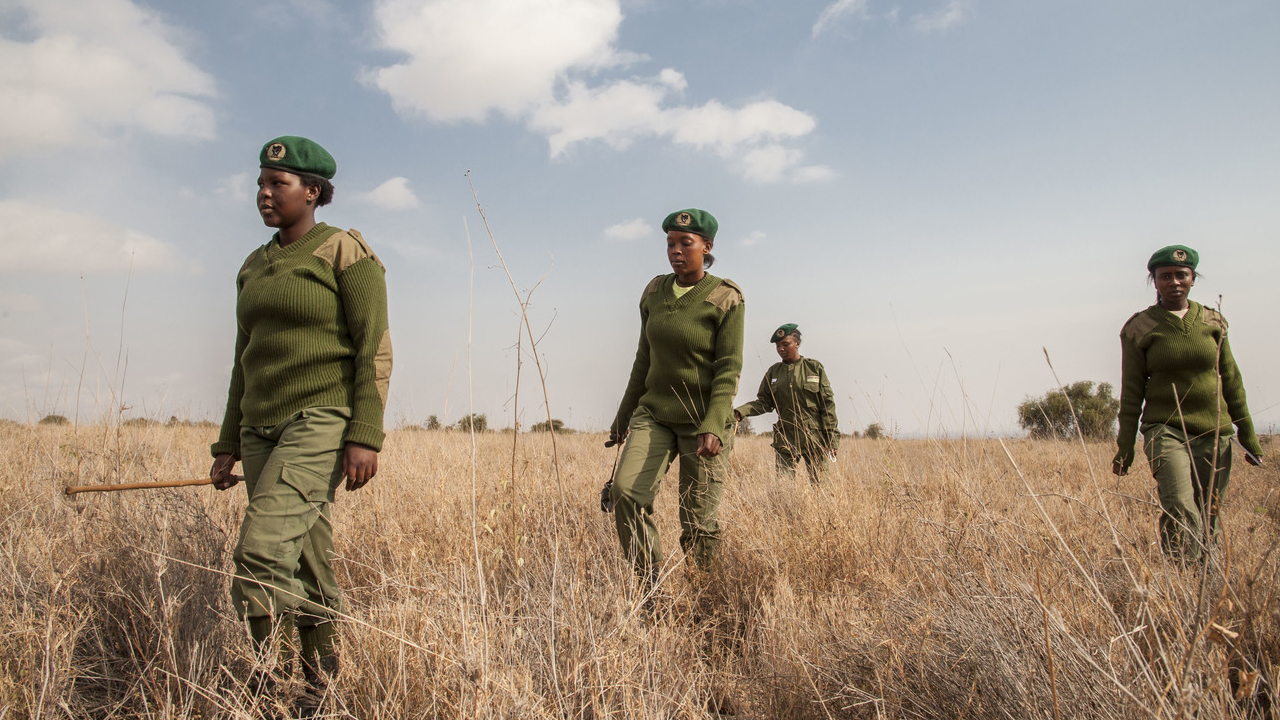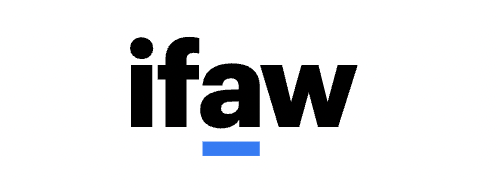

PEDESTRIAN.TV has teamed up with the International Fund for Animal Welfare to help protect the gorgy gorgy elephants.
Do you ever read about what people do for a living while you’re spending a day rotting and scrolling in bed and think, “Wow, what am I doing with my life????? What purpose do I serve in this world???”
Well, that’s exactly how I felt when I found out about Team Lioness.
Formed in 2019, Team Lioness is a female-led group of rangers whose job it is to protect and save Africa’s iconic wildlife, particularly elephants, from poaching and retaliatory killings in Amboseli, Kenya. The project is part of the International Fund for Animal Welfare’s (IFAW) wider ‘Room to Roam’ initiative — a conservation program that promotes human-wildlife coexistence through engagement with local communities. Through this, IFAW is spearheading conservation efforts for elephants.
Overall, its job is to protect the 330,000 elephants roaming East and Southern Africa, who are at risk of harm from poaching and climate change as they traverse between ‘fragmented’ safe spaces. 60% of the land these elephants roam is shared by communities, farmers and other developments — so it’s Team Lioness’ job to ensure both humans and elephants thrive in these circumstances. A key part of this landscape is the 150,000 hectares of community land surrounding Amboseli National Park that Team Lioness tirelessly work to ensure both humans and elephants thrive in these circumstances.
The 17 young Maasai women who make up Team Lioness were hand-picked by community leaders and IFAW based on their leadership skills, academic achievements, and integrity — they’re basically the Avengers of wildlife protection.
Their work is not only saving wildlife but defying social norms around gender within their community, as a huge pillar of the program is based on how improved economic livelihoods for women lead to thriving communities and reduced human-wildlife conflict. Huge.
To get a better idea of how they do what they do, we spoke to Purity Lakara, one of Team Lioness’ rangers.
PEDESTRIAN.TV: Can you explain the work Team Lioness does?
Purity Lakara: IFAW’s Team Lioness, and their male colleagues, patrol the community lands of the Olgulului-Ololarashi Group Ranch (OOGR). We ensure wildlife such as elephants, giraffes, zebras, and wildebeest are safe from any threats such as poaching or retaliation when there has been a human-wildlife conflict incident.
While on patrol, we take note of the wildlife we see and their numbers – we note down the numbers in an app on a phone. We take note of any wildlife coming too close to homes and try to divert them away. We also take note of any animals that may need help, such as injured elephants or giraffes, and call Kenya Wildlife Service to help in treating the injured animals.
Why is the work Team Lioness does significant to women in the Maasai community?
The community wildlife rangers, including IFAW’s Team Lioness, are all from the Maasai community. The community members mainly believe that only men can do the work of a community ranger. But when we became Team Lioness, it showed that even women can do this work [of a community ranger].
It helped in showing that women can do the work and that we are strong. The community sees us [women] as able. We are also able to talk to young women and girls, and they see us as good examples [role models] of what women can do. I am always proud of seeing myself walking with men in the bush and proud to be the very first female ranger from my community.
Can you explain what a day of work for Team Lioness usually looks like?
A day of work for IFAW’s Team Lioness involves waking up at around 5:30 am, and by 6 am, we are outside doing our exercises and morning run as we need to keep fit because of the work we do. We then come back and take showers and have breakfast. After breakfast, we go out for foot patrols which is usually by around 7:30 am. We are out on patrol until 1 pm and walk for up to 20 kilometres a day.
We then come back and have lunch and then relax, wash our clothes, and clean up. For those that have children, we spend time with our kids, and we rest. Sometimes we can be called to go respond to an incident of human-wildlife conflict. In the evening, we can help prepare and cook supper, but we have a cook.
How does Team Lioness work with the local community to protect animals like elephants?
IFAW’s Team Lioness works with the local community to protect animals like elephants in many ways. When we are on patrol, and we see wildlife like elephants coming too close to a homestead, we alert the people in the homestead and use a patrol vehicle, if it is available, or by making loud noises, we can help in trying to divert the elephants away.
If there has been a human-wildlife conflict incident in an area, and there is likely to be retaliation, we visit homesteads and have chats with mostly the women as they open up to us. Women overhear many things shared in the home, and they will let us know what is being planned. When the community is upset because of a human-wildlife conflict incident, they can sometimes plan retaliatory attacks, and the women share this with us so we can prevent such an attack. We also work with the community in terms of identifying any injured animals. For example, livestock herders could be out with their livestock and see an injured elephant, and because they know us as we are from the community, they call any of us, and we alert Kenya Wildlife Service, who come and assess the injured elephant and treat it.
Can you explain the impact poaching has on both animals and people within the Maasai community?
Poaching is not good for animals because they are killed, and it is also not good for our community because what brings the visitors and tourists to Amboseli is the animals. If the animals are killed, then there are no tourists.
What’s the biggest challenge you face in your day-to-day job protecting animals from poaching?
The biggest challenge I face in my day-to-day job is human-wildlife conflict, as it affects both people and wildlife. I have to understand that my primary role is to protect the wildlife but also that the community suffers major losses when there is conflict, and I have to be sympathetic to that – it is difficult.
How can folks who are passionate about conserving wildlife help out even if they’re not on the front line?
We need further financial support to protect animals. Where we stay at the ranger base, we live together like a family. We need food and the things that make a family, such as housing, water and electricity. The housing needs to be made bigger and, if possible, to have more rangers employed. We also need uniforms and shoes to be replaced when they get torn because of wearing them every day, and because some of us have small children staying with us at the ranger base, they need toys and books.
We could also do additional training where we get more skills and knowledge to do our work better. Also, the area we patrol is big and if we can increase the number of rangers, that would mean we patrol a bigger area and protect more wildlife and their habitat. Education about how we can work with communities alongside wildlife is also important so we can reduce the instances of human-wildlife conflict.
If you’re passionate about helping elephants thrive and seeing Team Lioness’ good work go further, you find out more right here.
The post Meet The Women-Led Team Protecting Elephants From Poaching & Helping Them Thrive In Kenya appeared first on PEDESTRIAN.TV .







